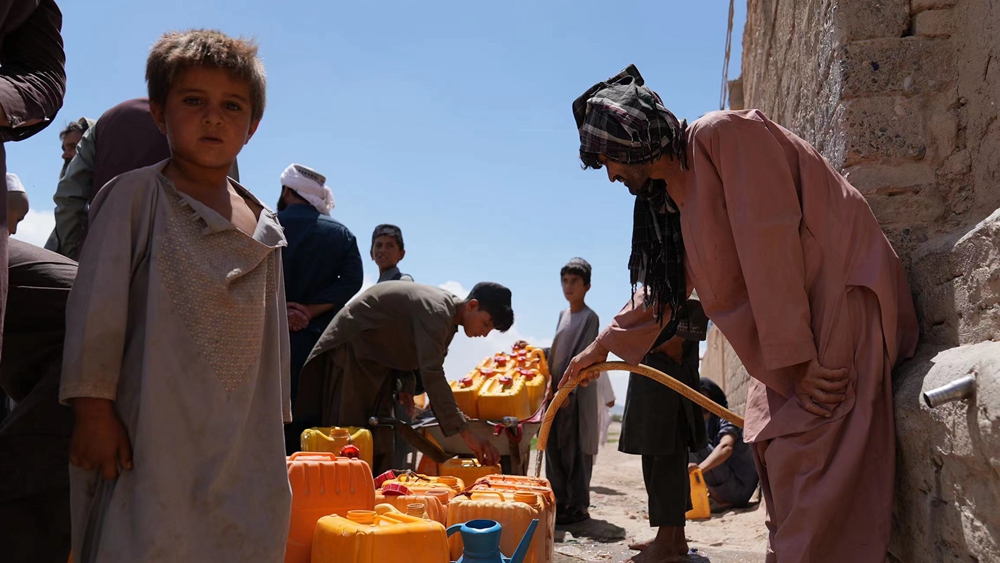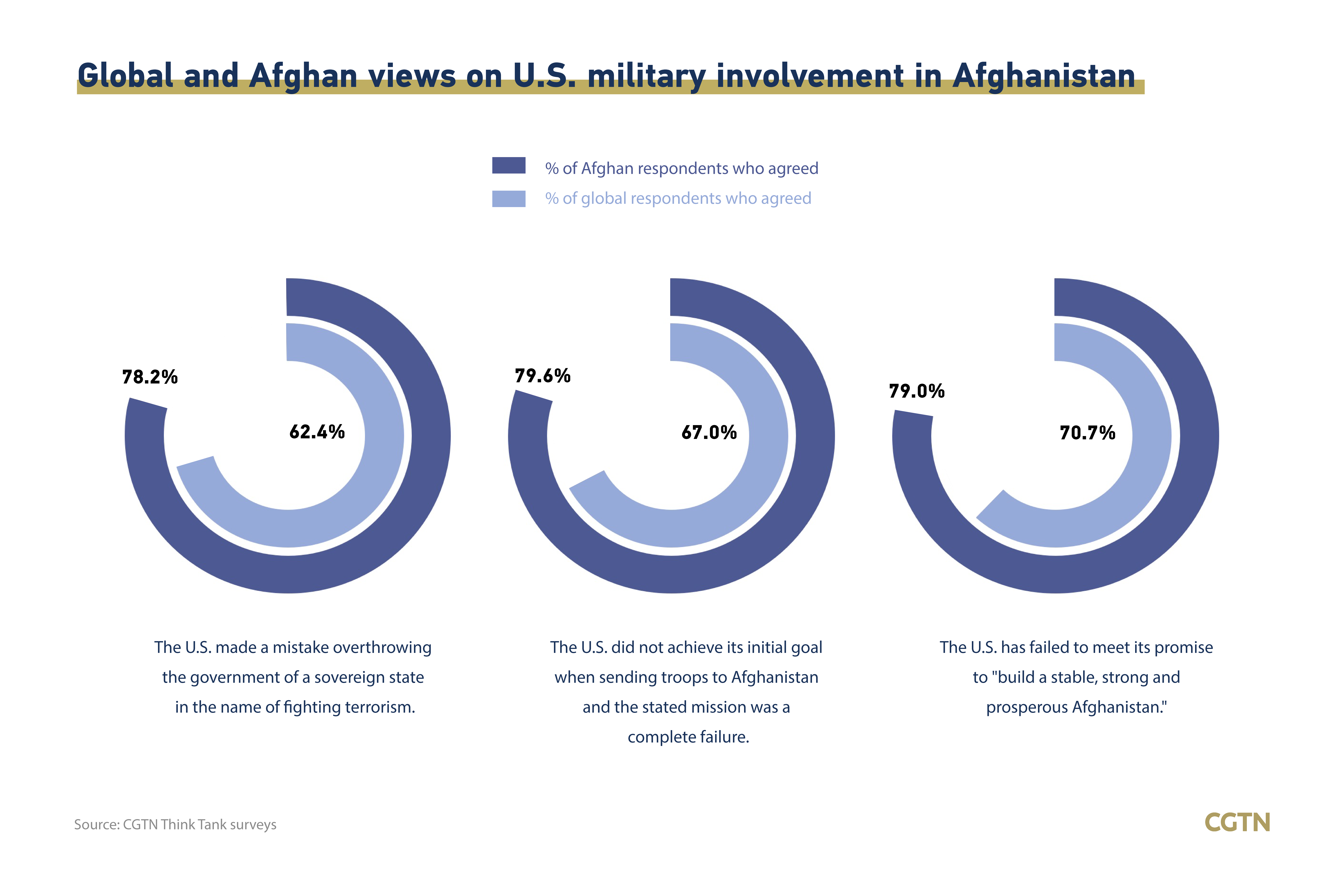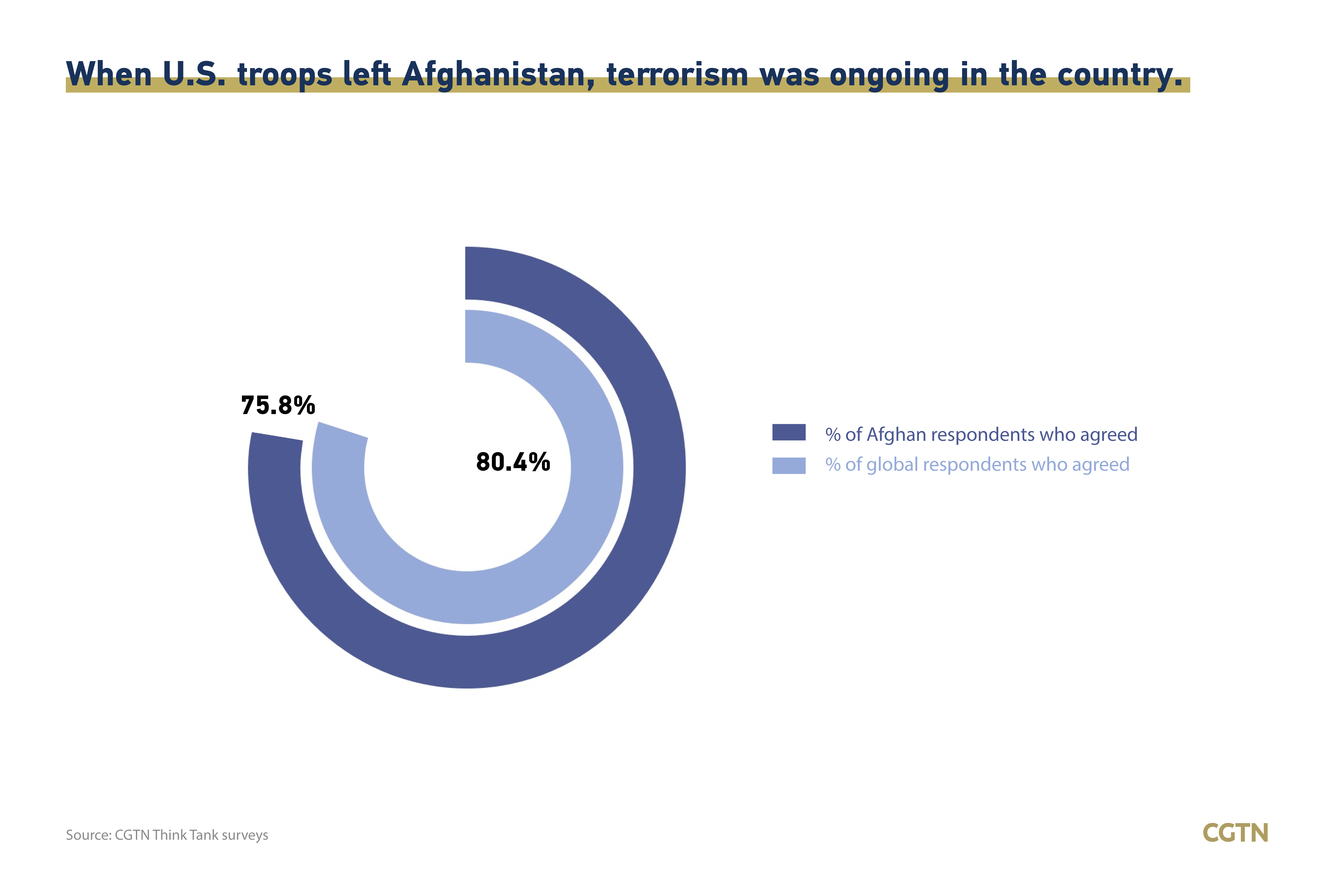
Fetching water from the only well for over 500 families in surrounding villages in Kandahar City, Afghanistan. /CGTN
Fetching water from the only well for over 500 families in surrounding villages in Kandahar City, Afghanistan. /CGTN
After witnessing the hasty retreat of U.S. troops from Kabul International Airport last August, the world is now concerned over the disastrous situation in Afghanistan.
A staggering 95 percent of Afghans are not getting enough to eat, with the number rising to almost 100 percent in women-led households, Dr Ramiz Alakbarov, UN resident coordinator and deputy head of the UN assistance mission in Afghanistan, said in a statement in March.
Zia, a middle-aged resident of Bamyan city, told CGTN that putting food on the table for his family is his priority.
"If I don't work, we cannot eat. I have to work from morning until nightfall," said Zia while harvesting crops.
Even so, Zia's family, like many other Afghans, faces a daily struggle to eat and his three children are malnourished.
The widespread hunger goes contrary to the promise of "a stable, strong and prosperous Afghanistan," which the U.S. made when it launched its "anti-terrorism" war in the country in 2001.

As many as 79 percent of Afghan respondents interviewed said the U.S. did not keep its promise while 79.6 percent termed the U.S. war in their country a "complete failure," according to a survey conducted by CGTN Think Tank and the Chinese Institute of Public Opinion at Renmin University of China with respondents from 24 countries including Afghanistan.
Moreover, 56.6 percent of Afghan respondents said the U.S. left Afghan economy worse than it was in 2001, while 52.3 percent said ordinary Afghans were poorer in 2021 than they were in 2001.
The national poverty rate increased from 38.3 percent in 2011 to 54.5 percent in 2016, according to Afghanistan Living Conditions Survey (ALCS) released in May 2018.

In addition to a poorer economy and worse livelihood, Afghanistan also faces severe security challenges.
According to the poll, 75.8 percent of Afghans and 80.4 percent of global respondents said that the reasons behind local terrorism still existed.
Afghans constitute one of the world's largest refugee populations worldwide, said United Nations High Commissioner for Refugees in November 2021, with more than 5 million people in protracted displacement since 2012.
Furthermore, as many as 68.9 percent of Afghan respondents said that the U.S. has lost its credibility in the international community because of the war it launched in Afghanistan.

